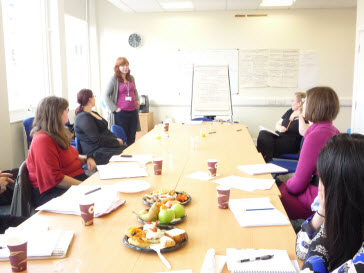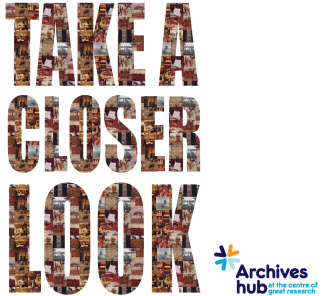This is the second post relating to the recent UKAD meeting, concentrating on the brainstorming that took place around digital and digitised archives.
The driving forces that were identified:
- Crowd-sourcing – metadata generation
- Attracts funding
- Promotes access
- Open up wealth of possibility
- Remain relevant
- Meet user expectations
- Centres of excellence in digitisation – common approach
- Collections already digitised are hidden – in silos – return on investment
- Potential to capture richer information about users
- Potential to draw people in
- Increasing ‘digitisation on demand’ – needs to be harnessed effectively
- Increasing amount of born-digital media need to be made accessible online – drive to discoverability of digital materials
- Changing profession – becoming more confident in this area as a result of above
- Web makes it much easier
The group felt that it all added up to a resouding “we have to do this!”.
The resistors included:
- Systems don’t talk to each other
- Insufficient metadata of legacy digitised material – retroconversion – cost*
- Copyright/IPR – complex, lots of local specificity
- Work needed to marry user generated content and standard metadata
- Community resistance to UGC
- Vast amounts of content – prioritisation is intellectually challenging
- Bulk digitisation is happening commercially – restricted rights
- Clashes with business models – or perception that it does (e.g. models based on commercial digitisation assume increasing return on investment; the opposite may occur if the most commercially enticing material digitised first)
- Fears – grounded in truth – could affect funding: diminish user/visitor numbers on site, diminishes value of on-site expertise
- Challenges in bringing catalogue data and digital object systems together
- Query: not ultimately cost effective
- Cost
- Web makes it easier – but it’s hard to keep up…
The group looked at actions that are required:
1. Accrue evidence of user demand and current behaviour
- Identify user communities (family, academic, student researchers)
- Secondary research of existing analysis
- Market research
- Produce cost-benefit analysis – impact on site visits?
2. Systems talking to each other
- People talking to each other about systems!
- Develop definitive list of systems in use – a picture of UK situation > crosswalks/maps between (see Library world)
- Needs to cover both catalogue and digital object management systems
- Discmap?
3. Copyright/IPR
- Produce decision tree to help archivists make decisions – risk assessment but beware risk aversion
- Encourage sharing of experience/lessons learned
- Gathering what has already been done
4. Impact of digitised resources
- Gather existing articles/research
- Share practice in assessing impact in differing contexts
5. Metadata and costs
- Establish costs of differing levels of metadata generation
- Identify how much data needs to be converted into digital metadata (how much is not online?)
6. Identify quick wins!
- Working together to create user cases and examples, sharing experience, getting onvolved in Resource Discovery Task Force and linking projects to this
Of course, the gathering of such evidence can help us to see where we are and where we need to go, and also how to get there. But implementation is quite another thing. The UKAD Network is hoping to build upon this work to encourage collaborative initiatives and the sharing of expertise and experiences. We are considering events and training opportunities that might help. We do feel that it will be useful to create a stronger presence for UKAD, as a means to provide a focus for this work, and we are looking at low-cost options to do this.


